
by admin | Dec 9, 2014 | Cinematography, Education, featured
a Super 16mm black & white short film.
One week ago I got the final grading of a short – film I shot last December on Super 16mm before starting uni, Food Fight, and I thought that it could be interesting to share the whole process.
I met Food Fight’s director, Natasha Waugh, while shooting a different project and as I had three cans of 16mm film stock at home that I was not going to use I asked her: Do you want to shoot something, maybe an experiment, with this? It has to be really short because we only have three cans!
After thinking about it, she came up with a short story about two food critics that get reunited in a restaurant and start talking about what happened in their previous date.
Pre – production…
Natasha wanted a 40′s / 50′s style and we decided that Black & White with a lot of contrast could be an interesting option so we started searching for the right place to shoot at.
After a couple of days going to restaurants, we went to a marvelous place a bit out of the city centre in Dublin called Cafe En Seine and we soon discovered that it was going to be our place as it had this extremely baroque decoration in the upper floor and we were going to have a lot of space to place the camera there too.
Hence, once we had the place, we started to see the different problems that we were going to have:
- The restaurant was going to be open while filming and that is something terrible as she would have to deal with background noises and things that she might not want in her short – film.
- We could only shoot for a very short span of time as the floor where we were going to shoot at had to be open to public around 6pm so we would have to finish shooting at 5pm and we were going to start around 10.30am / 11am.
- As we wanted to have a lot of contrast in the image and a very dark areas I felt that the backgrounds were going to be really dark and as I love practicals I decided I wanted to place a visible single fluorescent in one background to help create the illusion of contrast and also for it to give me a bit of kick light.
This background was the guy’s background and as he is the male of the story I wanted him to feel a tad rougher and mysterious than the girl who does not have that amount of light on her side and is treated gentler than the guy in terms of light.
- We knew that we wanted to shoot with an aspect ratio of 1:2.40, however, the camera that we were going to use did not have 1:2.40 frames so we had to create them with a bit of cellotape and a pencil.
We were talking about shooting a 10 minutes short – film in around 6 hours hence I had to be quick and smart and I did not have to take a lot of time putting lights for each camera movement (which is what I had loved!)
To get the mood of the short – film we shot a couple of 35mm black and white rolls with different processes to see if we really liked black and white or if we wanted more density, or more grain, or less contrast, etc.. all those tests that a cinematographer loves shooting while in pre – production!
And we fell in love with four things, black and white, grain, contrast and how film rendered the high – lights so we decided that although the story was a comedy we were going to shoot it as if it were something a bit darker.
To shoot the whole short – film we said: let us be smart, shoot a master and then coverage in two sizes and that is all, you will have your short – film in time and you will have enough things to cut it with.
The whole shooting list is in the image below, not too long though!
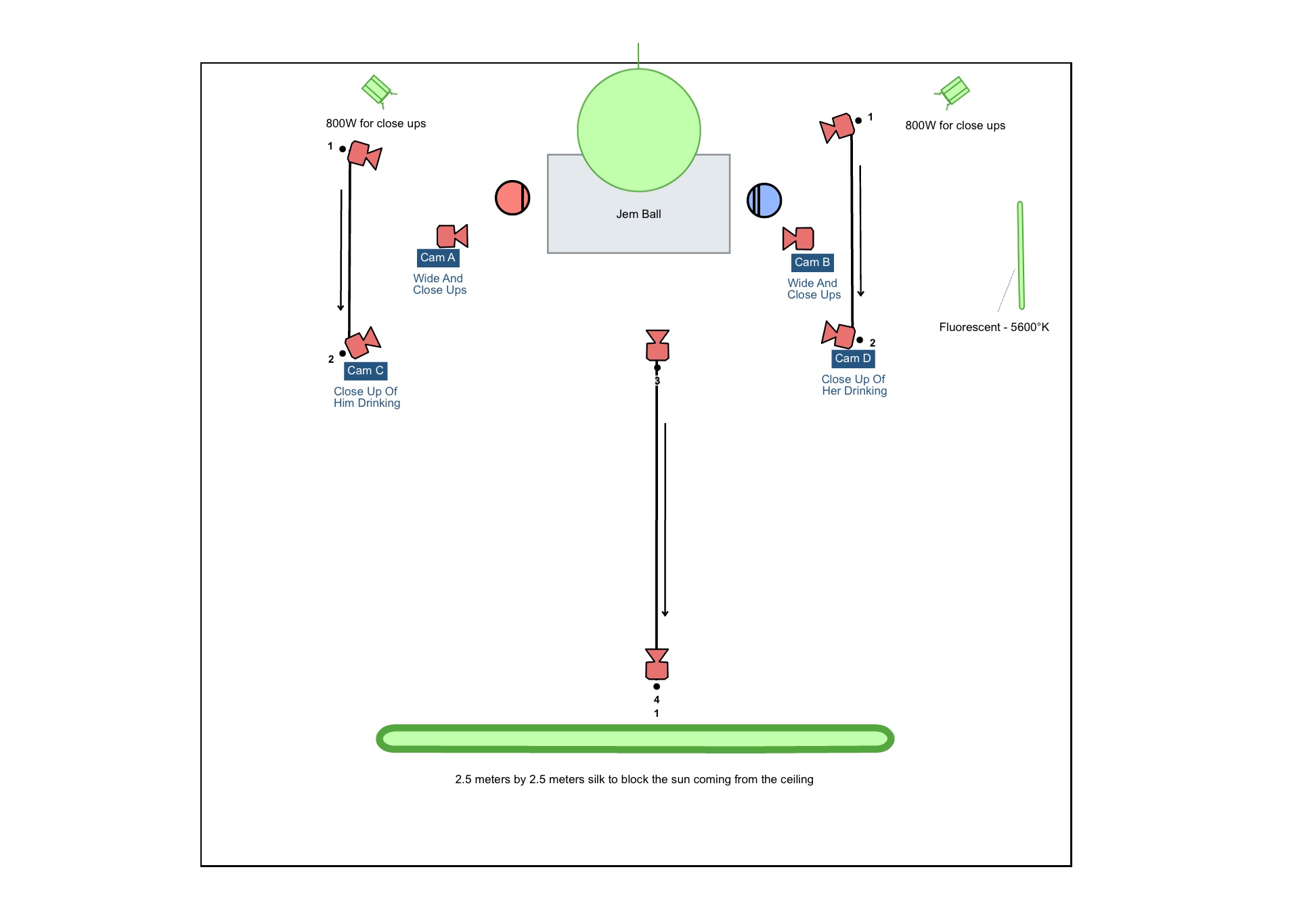 The lighting equipment list was very short, as I said, I did not have a lot of time to put lights.
The lighting equipment list was very short, as I said, I did not have a lot of time to put lights.
Lighting list
- 1 x Jem Ball
- 2 x 800w redhead
- 1 x Fluorescent tube
- 1 x Black silk 2.5meters by 2.5 meters
- 2 x Flags 1.5 meters by 1.5 meters
- 1 x White / Black polyboard
- Open roll Cinegel #3402 Rosco N3
- Open roll Cinegel #3403 Rosco N6
- Open roll Cinegel #3404 Rosco N9
I would have loved to have Chimeras for the Redheads but we could not get them due to budget reasons, at the end of the day, this was kind of an experiment!
…On set…
As we did not have a lot of time I decided to go with the Jem Ball for an ambient light and use it to light the faces, which I was going to underexpose.
I wanted her face in the zone 4 with a gradient towards the zone 5 so the reading for the zone 4 was T2.8 and I wanted his face in the zone 3 towards the zone 4 so I adjusted the Jem Ball when shooting his scenes.
Seeing the images now it is my thought that if I had put a diffusion frame under the Jem Ball I would have gotten a better quality of the light and the gradient between the light and the shadow would have been a bit wider, next time!
I used the Red Heads for the three quarters kick light (T8 1/2), zone 7+, and then let the fluorescent explode (T22 1/2), zone 9+, I decided to go further with the fluorescent during the grading and I left it super over exposed.
I wish I had had the time to think twice about some things as nowadays I reckon I should have put a fill light in their faces in the close ups and a fill light and a rim light in the wide shot too to help separate them from the background more.
My T Stop was going to be T4 but I hesitated a bit and I put T4 1/2.
I like really dense blacks!, if I were going to shoot it today, I am sure I would put T2.8 2/3 or T4 though.
We shot on Fujifilm Eterna Vision 250D with Tungsten sources, mainly because it was the film stock I had, we wanted to push it 1 stop to get more grain and also because I feel that tungsten lights look less artificial, I also exposed at 500ASA because I wanted to see the effect of not having that extra thing that you get exposing at 400ASA and I have to say that I will expose for 400ASA next time.
And here are some of the frames, click on them to see them better.
Frame 001
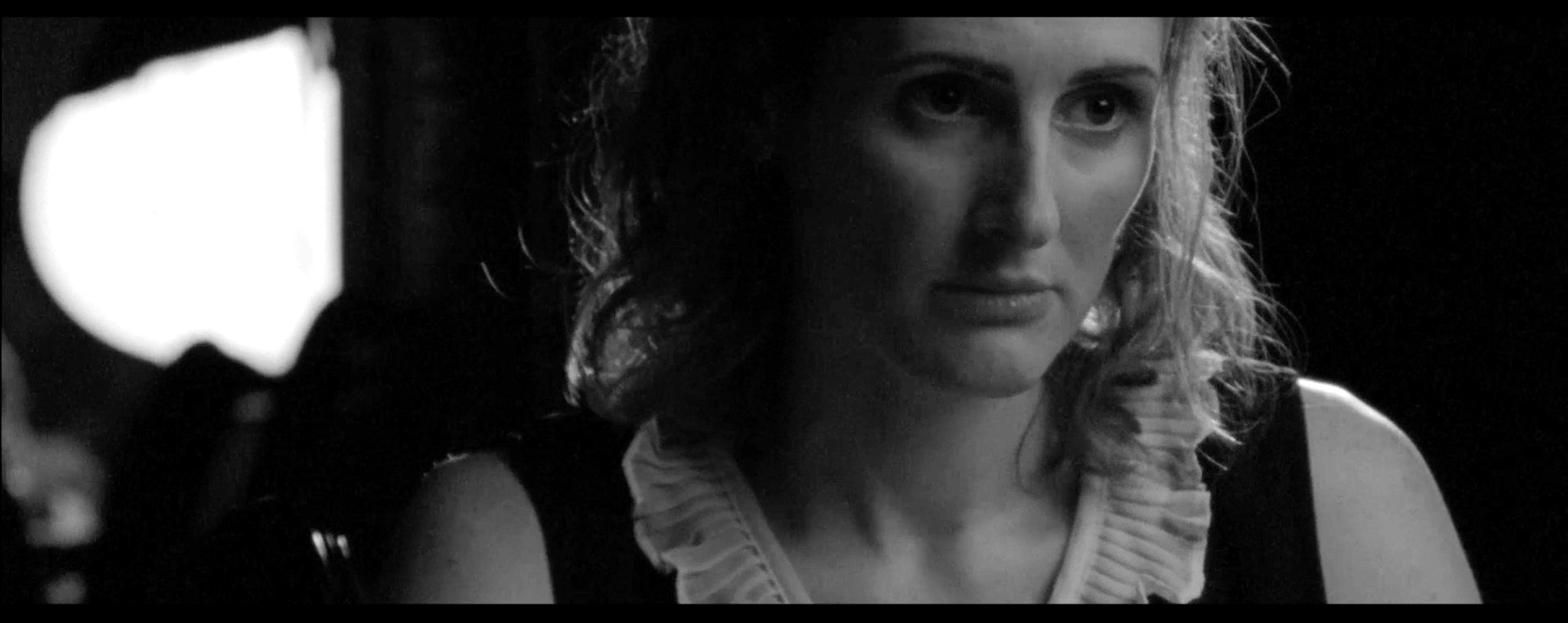
Frame 002
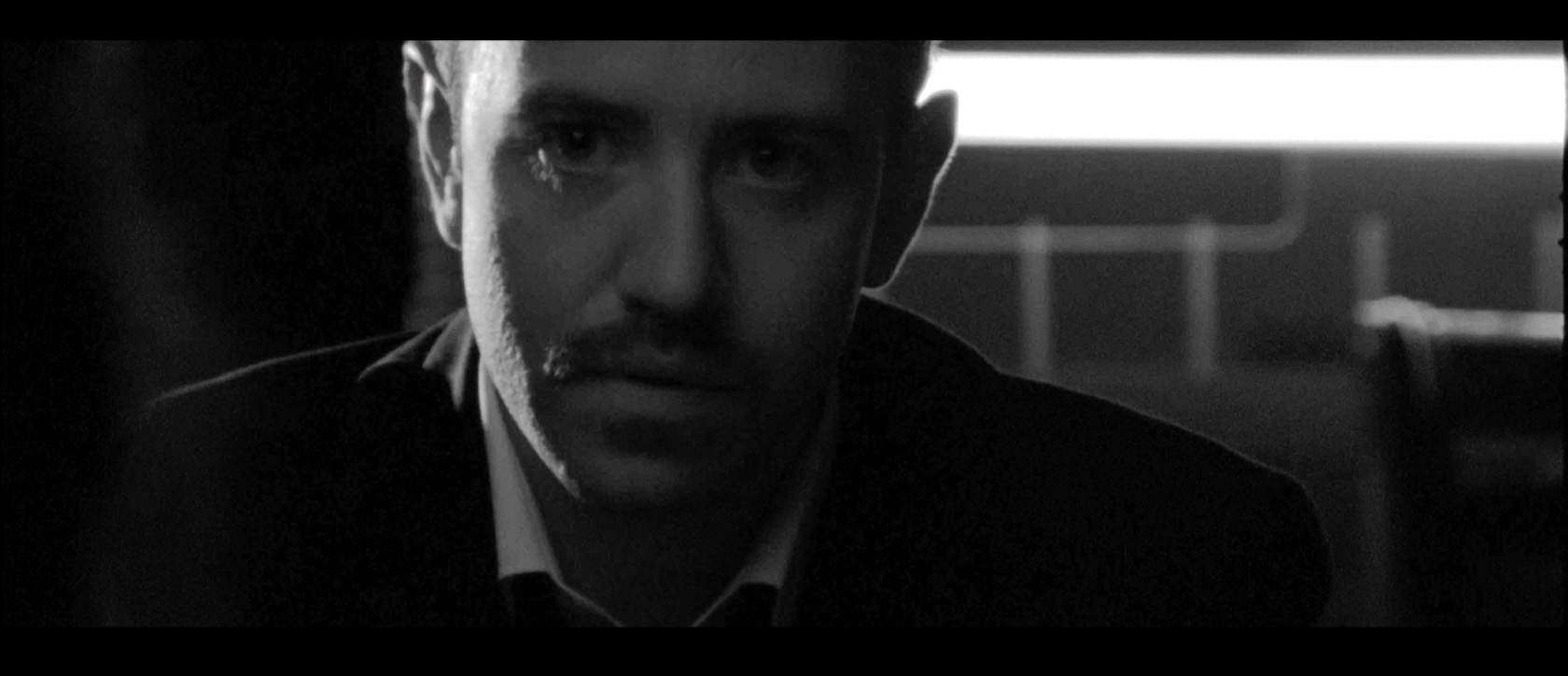
Frame 003
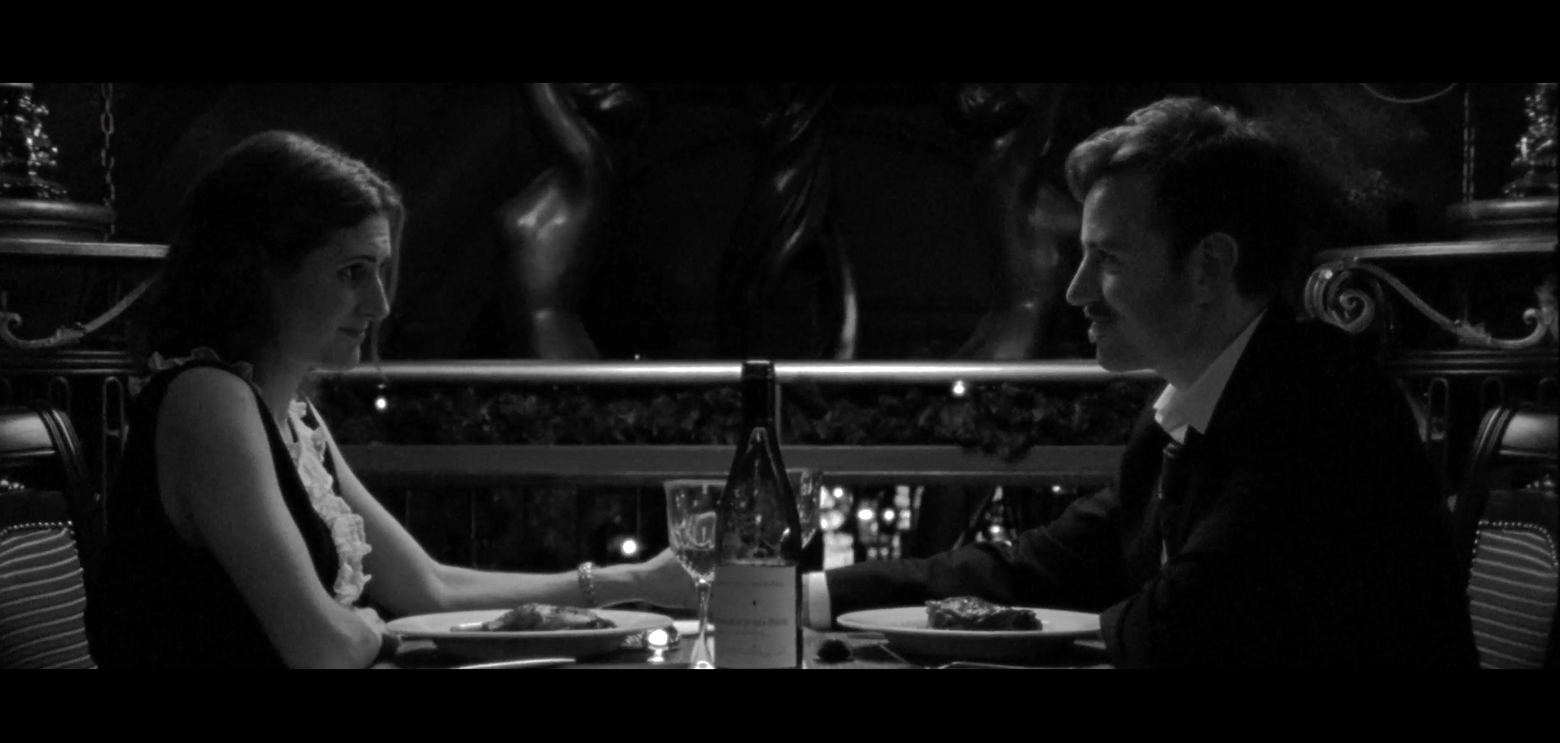
Frame 004
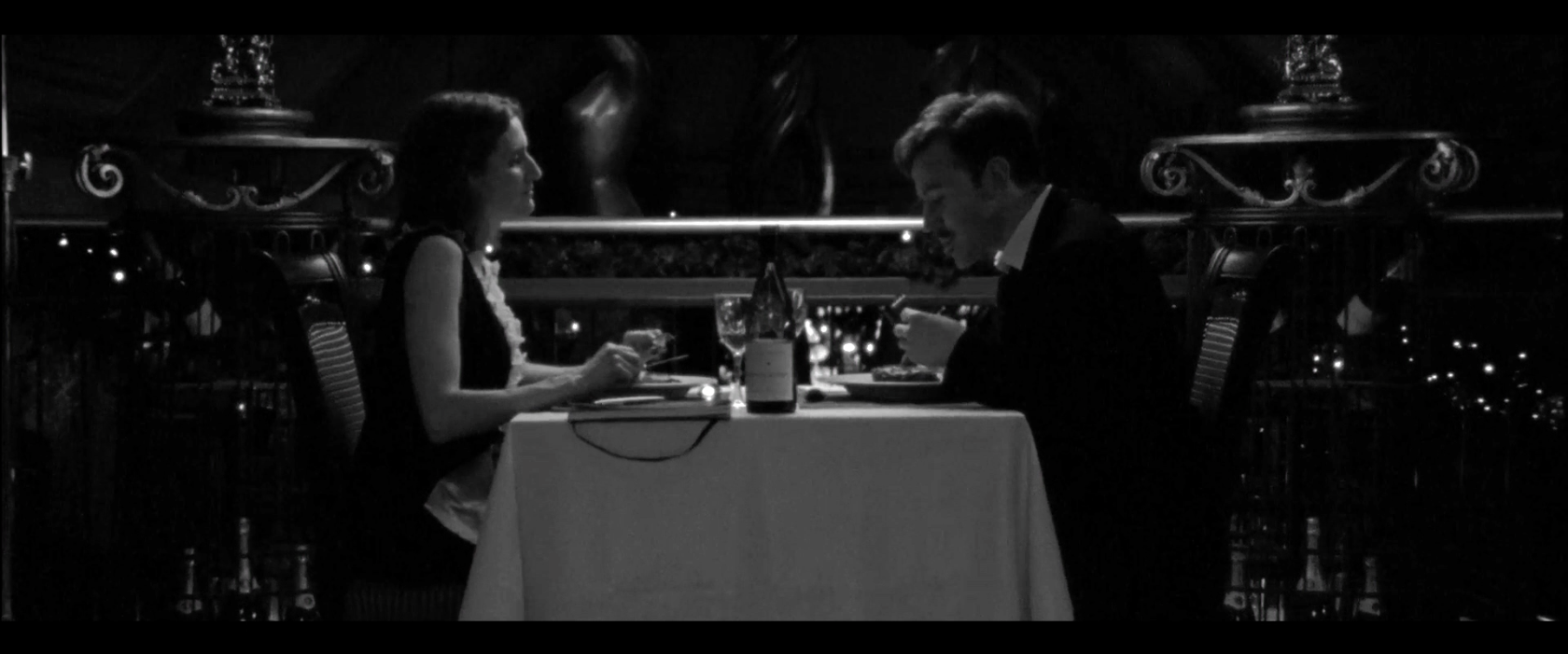
Frame 005
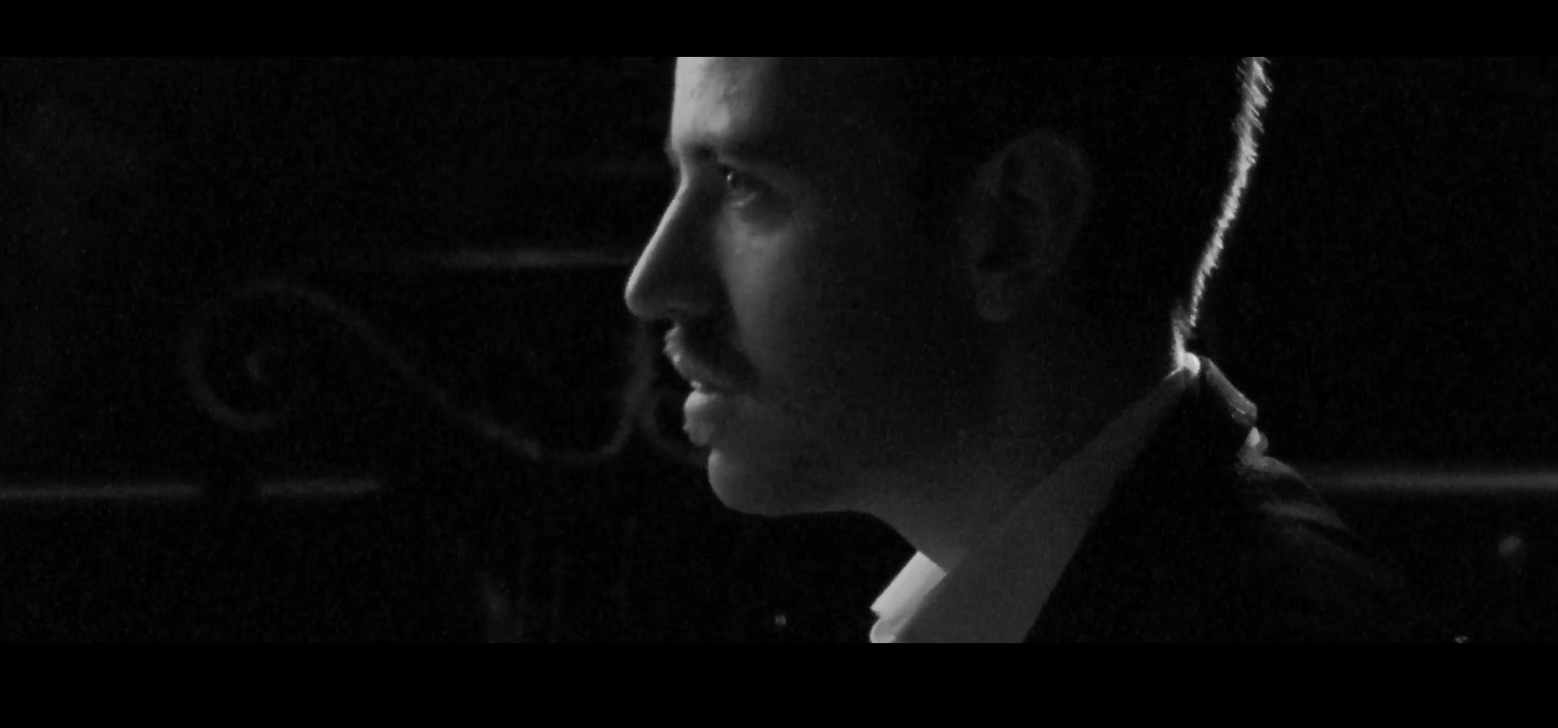
…Post production…
When we finished shooting, we sent the film stock from Dublin to London, to Cinelab London which took care of the negative from the beginning of the development to the end.
They really did a fantastic job and I cannot but recommending it as it is a superb lab!
We got a ftp address from where we were able to download the short – film (they sent us a HDD with the full project inside too) and once we got everything, we sent it to Mordisco Films a post – production company in Spain where one of the best colorist in Spain, Alberto Díaz, took care of it and delivered an amazing black and white image full of density and life.
And that is all!
I hope you enjoyed the reading!
Miguel Ángel
www.miguelangelvinas.com
_______________________________
Short – Film Details
Director: Natasha Waugh
Producer: Natasha Waugh for Fightback Films
Cinematographer: Miguel Angel Viñas
First Assistant Camera: Curtis Morris
Gaffer: Oisin Lowry
Spark: Michael Gilbert
Lab: Cinelab London
Camera Rental House: Filmbase Dublin
Lighting Rental House: Teach Solais
Color Grading: Al Díaz (Mordisco Films)
by SeanBreathnach | May 17, 2014 | featured, Festivals, Screening, Short film
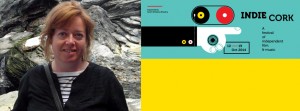
Una Feely
This week we had the pleasure of chatting with Una Feely. Una co-founded IndieCork Festival in 2013, the only arts Co-Operative in Ireland. The festival focuses primarily on independent film, media and cross-platform arts. Her background is in programming and arts management. From 1991 – 2013 she worked with Cork Film Festival. She has programmed Irish film showcases for many international festivals from Lisbon to Liverpool. She participates on the Board of Directors of the Crawford Gallery, and the directorate of the International Short Film Conference.
Hi, Una – thanks for taking the time to chat with us. We will start with the broadest possible question: What do you look for in a film?
It’s hard to define, as short films in particular throw up so many surprises. I’m always looking for films that move me in some way. These kind of films come under the heading of ‘films that had to be made’. I’m also looking for films that are fresh and innovative – not necessarily experimental, as I’ve chosen many narrative dramas too over the years. I think it’s more about the treatment a filmmaker gives their film – the nuances, the subtleties and the intentions behind it. And then how successful it’s been at getting that across into one coherent piece of work. That doesn’t necessarily tie into fabulous technical achievement either.
What advice would you give to filmmakers hoping to maximize their chances of getting their films into festivals?
You can make a great film but send it to the wrong kind of festival, one that doesn’t focus on your type of work. This is so disheartening for filmmakers, so I would say do the research on which festivals might suit your film – what kind of work have they selected before, read between the lines of their entry form and their website statement. Often you will find some hint as to the kind of film they think is worthy. Find out which festivals are genuinely respected, where getting selected will be a real honour and something taken seriously. Don’t be disappointed if your film doesn’t get into Cannes or Venice, very few do! Rejoice if it gets into even one decent festival, someone has identified with your film and appreciated it. Present your film in a professional way, making it easy for the festival to process it and play it.
Finally, before sending your film out, do get a few genuinely independent opinions on your film, so that you know the film might travel well.
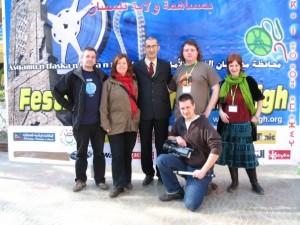
Sometimes I think that the shorter a short film is, the more likely it is to get screened by festivals. Do you think that’s true?
Actually I think the heyday of the 3 minute short is gone. That said, we had some amazing very short Japanese animation at IndieCork last year. Very short films are quite hard to find now, except for animation. It’s good to have a mix of lengths from the audience point of view though and that’s one reason festivals like them too, so they are seen as more ‘programmable’ In general I think short films have got longer, 20 minute films are almost standard. Sometimes a longer length allows the filmmaker to create a stronger more lasting statement. Generally, adding length to a film can damage it badly I think – and the best rule is to make a film the length it needs to be, nothing more.
I noticed in your previous selections that you place a great emphasis on the quality and diversity of the films you program. How do you source these films with an eye to keeping the quality of the programme so high each year?
Thank you! I suppose it’s a competitive process for one thing, so last year IndieCork received 3,000 plus entries. Viewing all of these was difficult logistically, but it pays off when it comes to rounding it down to roughly 50 films. Then you really see the quality coming in and the feeling that each film has won it’s place in the programme. The shorts selection should be a look at the best of what’s happening internationally and at home. You do have to care how the programmes are put together, and think and practice different combinations in your head at least.
What is your approach in working with the film selection committee to choose movies? Are there any battles over specific films?
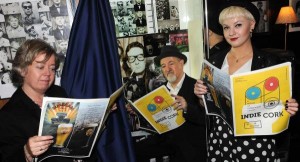
Last year the people selecting films were from diverse backgrounds and this contributes to the mix of films selected. For example we had a Canadian film expert working away independently sending in her reviews and we also had festival directors from well regarded international festivals contributing. Locally, there was a small army of interested and knowledgeable contributors. This was the great discovery for us, that on our doorstep there is invaluable talent and support and a real cinema constituency keen to contribute to IndieCork. We do discuss some films indepth and at length. Generally I’m in favour of the ‘if you love it we’ll try to screen it’ approach, so long as you can shine some light on a film that others maybe can’t see the merits of immediately. So there is some convincing to be done at times, but if somebody genuinely has a passion for a film, it deserves to be listened to. There are always 10 other festivals that could have happened in the unselected pile each year.
In your view, what is the role of a film festival?
Big question! Firstly I think a film festival is a celebration of a few things – of film, of an audience coming together, of those that make films and of the community they’re based in. There’s a great bit of magic that can happen if it’s done well. Everybody has the sense of investment in it; the filmmakers, the organisers, the audiences and the industry. it should be a genuine showcase for filmmakers – an opportunity to present their work, and to get feedback and interaction with an audience. A festival should provide access and opportunity. There is so much happening in independent film and so little of it seen, and yet Cork has this great appetite and appreciation of film. At IndieCork we’re trying to instill this into how we work, a sense of Cork celebrating independent film and creativity. We’re also keen to bring a bit of fluidity back into the scene. The festival template can become very staid, with financial pressures and tourism statistics dictating activities. There is a tendency to plough the same path again and again, as that’s what is being asked of you by the funders. IndieCork will certainly do our best to avoid that. On a basic but important level, festivals contribute to the quality of life where you live.
Have you any thoughts or advice regarding Irish films or films made here in Cork?
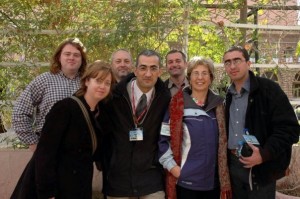
I think great development has happened in Cork on the film scene over the past decade. It would be good to see that continue, despite the very centralised focus on filmmaking in Dublin. I would worry about investment in Cork, and the Arts Council decision not to fund Cork Film Centre is a blow to many people. It will just simply make it harder especially for those new to the scene, to gain access to equipment and training. So perseverance is so necessary for anyone determined to make films in this climate. I think the emphasis from funders has been to support films that are determinedly making their way to a particular marketplace, usually focused on the U.S. No disrespect to these filmmakers, but I’m more interested in the personal and individual approach to filmmaking, story-telling, experimentation, whatever the area you’re interested in. I don’t think that the films we make as a national cinema have a very personal focus but again there isn’t the sheer volume of filmmaking here. The flair, vision, imagination and individuality that you see in short films, isn’t generally coming across in feature filmmaking. Last year at IndieCork, we found some exceptions to this in the new Irish features we presented, these filmmakers were all working outside of mainstream funding and perhaps that was liberating in exploring their own path. The budget is the aesthetic, as the great producer Christine Vachon says. Locally there is now a foundation of filmmakers in Cork, engaged and producing good work. I think opportunities to think outside of what you know are invaluable; seeing international films at festivals, meeting delegates and seeing what’s happening internationally (not just the U.K. and U.S.) all really helps to widen the scope of the work. I’ve noticed a correlation between filmmakers who will spend a week at a festival taking in all the international shorts programmes, and those making good work.
What can we expect from this year’s Indie Cork Film Festival?
We have a lot planned! We have been developing the idea of IndieCork for one thing. We see the festival as a fluid concept in terms of presentation, so we’re looking at events that you would call cross-platform in that music, film, performance and other elements are involved. We have of course at the core, film. We’re working with a couple of international agencies on presenting specific work and themes, all to be revealed late Summer. We’re again putting together some workshops that we think are relevant and important. Last year, Niall Owens put these together and did a great job, so Niall is back this year with renewed ideas and plans for that element. Our first year was pretty much an exploration of what could be created in six months. So 2014 will offer a more fully rounded festival – on a budget of course! We’re working in partnerships of different scales too; locally with a lot of creative producers and internationally with agencies and festivals and filmmakers. 2014 will see our partnership with Heritage Pubs and their venues blossom out in a central part of the festival too. We’re looking forward also to bringing some exceptional talent to Cork, people with a lot to offer both the audience and the filmmaker. Plus, IndieCork is always going to be rooted locally. The team here is available to connect with anyone with a good idea; that mercurial element is something we’ve instilled to the fabric of the festival. Mick Hannigan is not hard to find about town! …and the rest of us aren’t far behind him either, so get in touch; IndieCork 2 is coming!
For further information on IndieCork, or if you wish to submit a film to IndieCork, check out: http://indiecork.com/
and: http://www.facebook.com/IndiecorkFilmFestival
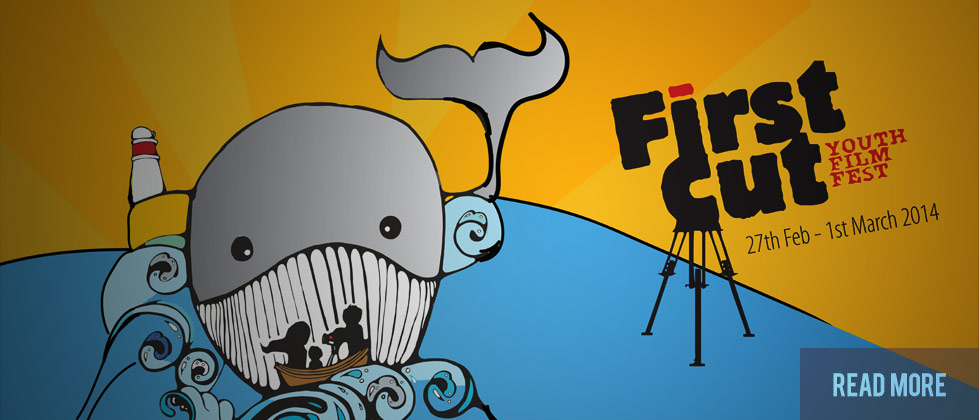
by admin | Feb 24, 2014 | featured, Festivals
Ireland’s Only Pop-Up Youth Film Festival!
The First Cut! Youth Film Festival takes place in the beautiful seaside town of Youghal, Co. Cork later this month. It offers an exciting opportunity for young filmmakers, aged 12- 21 years, to gather together in a vibrant festival atmosphere for a rare chance to network and showcase their work. As well as the screenings of works by young filmmakers, the Festival will also include workshops, performances and the rare opportunity for budding filmmakers to learn from, and engage with, professional filmmakers. Panel discussions, Q&A sessions and hands-on workshops will take place in the Mall Arts Centre.
The Festival will be opened by Killinascully star, Pascal Scott on Thursday evening at 6.30 pm in the Mall Arts Centre and everyone is invited! Seven short films will be shown to whet your appetite for what promises to be a great weekend of film. The Gala will also launch Towards Confident Film Making an innovative programme for building confidence and skills with young people.
Friday, is Schools Day with the focus on primary school pupils in the morning and secondary school pupils in the afternoon. There is a full programme on Saturday March 1st for young film makers starting at 10.30 am in the Mall Arts Centre. The morning will be devoted to fictional shorts where short films will be screened and then there will be a Q&A session with Mark Cogan, writer and director, Ruth Hayes, actor, writer and director and Dan O’Connell, writer and director and lecturer on the BA in Film and Screen Media in UCC.
The afternoon sessions will kick off at 1.00 pm with a screening of animation films followed by an interactive talk by Jane Lee, award winning animation director. Then, at 3.00 pm, the session will explore the world of documentary film making with Max Le Cain, filmmaker, cinephile and film critic and there will be a screening of international documentaries made by young people. The final session starting at 5.00 pm will focus on music videos and will be hosted by Shaun O’Connor who has won awards at various festivals and has also directed numerous music videos.
There is also an Acting for Camera workshop for young people aged 12 – 21 years with Mark Cogan and Ruth Hayes. This is a great opportunity to attend a fun, on camera, interactive workshop where participants will get the opportunity to develop their communication skills. The workshop is free but participants have to book in advance through emailing firstcutfilm@gmail.comand telling them why you want to take part in the workshop. The Festival receives funding and support from Cork County Council, the Arts Council, HSE, Cork Film Centre and SECAD and are sponsored by Salesforce.com and a variety of local businesses.
There is also a fantastic Facebook page at: www.facebook.com/pages/First-CutYouth-Film-Project-Festival/127337763985353 where you can watch short films made my young people in Cork over the past few years made with the support of SECAD, Cork County Council, the Arts Council and Cork Film Centre.
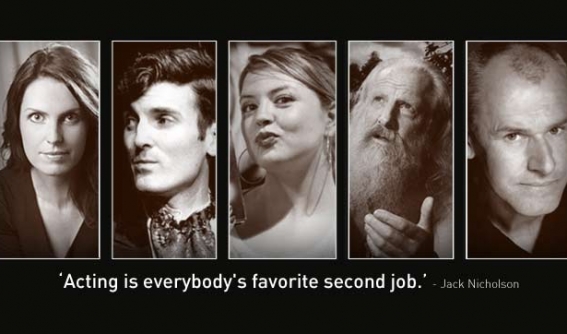
by SeanBreathnach | Aug 1, 2012 | Acting, Education, featured
A Conversation With Cork Based Actors
This week we interviewed some local actors to get their take on the short film scene, and to find out what makes them tick.
The actors we interviewed are:
[image_frame style=”framed_shadow” align=”left” height=”160″ width=”200″]http://egomotion.net/wp-content/uploads/2012/07/ruth-hayes-headshot-bw-medium-199×300.jpg[/image_frame]RUTH HAYES:
Ruth studied drama with LAMDA, here in Cork. She went on to study screen acting in both Cork and Dublin with the Irish Film Academy and with award winning writer and director Terry Mc Mahon. She has appeared in numerous performances on the Cork stage over the years, including Dancing at Lughnasa, The Country, A Serving of Pinter, Playboy of the Western World and Tons of Money. Her musical theatre credits include the lead characters in Guys and Dolls and My Fair Lady. On Screen, Ruth has featured in several short films including, Partly Cloudy, Th3 Room, Searching for Ten, Grief and Dying Wish. Ruth also played the lead character in the independent feature film The Far Road. http://osullivantheactorsagent.com/?p=396
[image_frame style=”framed_shadow” align=”right” height=”160″ width=”200″]http://egomotion.net/wp-content/uploads/2012/07/jrh.jpg[/image_frame]
JOHN RYAN HOWARD:
John graduated from Kinsale College and has also trained under Hollywood’s top Acting coach Margie Haber of Margie Haber Studios, Los Angeles. He has performed leading roles in over 50 Short Horror & Comedy films.
John’s work on stage has ranged from Irish classics such as Brian Friel’s ‘Translations’ whereby he played the leading role of ‘Owen’ to farce comedy’s such as ‘A Flea In Her Ear’ whereby he played the role of ‘Etienne'(a role made famous by Sir Anthony Hopkins).
John’s latest performance as ‘Lord Henry Wotton’ in a stage adaptation of Oscar Wilde’s ‘The Picture of Dorian Gray’ (July 2012) earned him critical acclaim.
http://www.imdb.com/name/nm3319585/
[image_frame style=”framed_shadow” align=”left” height=”160″ width=”200″]http://egomotion.net/wp-content/uploads/2012/07/CC-247×300.jpg[/image_frame]
CATHERINE CROWLEY:
When Catherine was growing up she wanted to be either an actress or a nun! Thus far the acting is winning that rivalry. If there is any aspect film-making, be it performing, sourcing props, clapper board, or even making the tea, there is nowhere she’d rather be. This is her passion.
Catherine studied acting in the School of Music and the Actors Space in Vic, Spain. She has been involved in several productions including ‘Baby Boots’ [dir. Dan O Connell], ‘Flipping Channels’ [dir. Fiona Riodan] and most recently ‘Partly Cloudy’ [dir.. Mark Cogan]
http://catherinecrowley.webs.com/
[image_frame style=”framed_shadow” align=”right” height=”160″ width=”200″]http://egomotion.net/wp-content/uploads/2012/08/534181_10150910420164219_1680869318_n.jpg[/image_frame]
FRANK HURLEY:
Frank Hurley starred in the lead role in the recent award winning short film “A Selfless Act”. Prior to this he has acted in several short films which have been screened in film festivals at home and abroad. Frank hHas also turned his hand to producing and has produced his last three films, ‘Baby Boots’ Twinkle Toes’ and ‘A Selfless Act’.
http://www.imdb.com/name/nm3810877/
[image_frame style=”framed_shadow” height=”160″ width=”200″]http://egomotion.net/wp-content/uploads/2012/07/SOC.jpg[/image_frame]STEPHEN O’CONNOR:
Stephen studied acting in The Gaiety School Of Acting and St John’s College, Cork after which he went on to act in over a dozen short films including The Lump (RTE / Ed Godsell) and The Legend Of Jonny King (Stormlight Productions). He has starred in Fair City and other RTE productions.
http://www.imdb.com/name/nm3734338/resume
The Interview:
1. What is the best part of the job?
Catherine: The best part to the job is meeting and working with people brimming with enthusiasm and talent. Being part of a friendly and passionate group also makes it not seem like work at all.
Ruth: I love getting to be someone else! I enjoy reading a script and discovering who the character is. Working out what makes them tick and how they respond to certain situations. Really getting under their skin. I’m obsessed with human behaviour, so the opportunity to play different characters in a disparity of situations is what I love most.
Stephen: Going home at the end of the day knowing that you did the best you could.
John: Personally, when you find a role that suits you perfectly where you have the opportunity of using your own unique qualities that colour a character uniquely. Particularly on stage where you have the opportunity of being in character for a long period in front of an audience playing a lead role where you really grow into a role organically. And not to mention the fantastic craic you have during a run of a show, mostly with an ensemble cast. Due to the long period of time you spend with a cast and crew on a show, everybody becomes very attached to each other in a good way.
Frank: I suppose I’ve lived in a fantasy land all my life, I think its fair to say I’m not in touch with reality at all, at all, and acting allows me to live out some of those fantasies briefly.
2. What is the worst part of the job?
John: The ruthless business side of acting. How hard it is to get seen whether it be on stage or screen, just to get Casting directors to watch any of your material or to come to a live performance. Most jobs in Cork or indeed Ireland are unpaid acting jobs so it makes it very hard to support yourself when you are committed full-time. Auditions also tend to be a horrible experience for most actors, particularly when you don’t get a fair opportunity to show your potential for the given audition due to a lack of understanding about acting or actors.
Catherine: I suppose the instability of the business. It’s always tough when your not sure when the next job is coming.
Stephen: Going home at the end of the day knowing that you didn’t do the best you could.
Frank: Getting nowhere fast!
Ruth: The uncertainty, for sure. It’s not the kind of job where you train and hone your craft and then opportunities will follow suit. You’re not afforded the luxury of that kind of career trajectory. You can have times when you’re constantly working, then times when you hit a dry spell. It really can be a feast or a famine. You need a lot of determination to stick at it in those quieter times.
3. What advice would you have for anyone who wants to get into acting for screen?
Catherine: Less is more. The camera picks up everything, it is totally different to acting on stage. The camera captures thoughts so the smallest glance will mean a lot. Keep going to acting classes/courses as you can always learn more. The day you stop learning is the day you die.
Frank: Don’t try doing it off the cuff like I am, go to drama school and do it the professional way.
Stephen: Take a screen acting course and act in as many student films as you can. Student films are a great way to gain experience.
Ruth: Firstly, I would advise on doing a course in screen acting. There are so many great courses and workshops in acting for camera. It’s a completely different discipline to theatre acting. Yes you’re still doing your scene breakdown and character study but the delivery is very different. A lot of these courses will show you how to deal with life on set etc. Many of them will record you acting on camera. Even though it can be a cringe worthy experience, it’s invaluable for highlighting little habits that you may have that you need to kick when acting for screen. Once you have that done, then go and get the experience. Send your CV into St. John’s central college here in Cork and put yourself forward for as many short films as you can. Keep an eye out online for opportunities also. Of course Egomotion is a great place to get to know people and find out what’s happening. Fellow actor Marcus Bale also runs the Irish bulletin for actors and actresses, on facebook, so make sure you join that too!
John: Get as good a showreel as you can get, ideally by finding duologues where you can be seen to be clearly working off another actor, actively listening, clearly in the moment with a substantial amount of reaction shots of you. As the saying goes acting is re-acting. And to have as good a contrast as you can both drama and comedy to show as much of a range as you can manage.
4. What was the biggest challenge you faced in your most recent film?
Stephen: Trying to remember that “LESS IS MORE”!
Catherine: Honestly, Heels. It can be hard working in costume for the whole day on set. Particularly if you haven’t broken them in beforehand!
Ruth: Falling forward on cue and making it look natural!!
Frank: The last film i did I played the part of a down and out. A real life homeless person approached me as if I was living rough and tried to give me some advice, I found it very hard to admit to this person I was only acting a scene so I stayed in character rather than embarrass him. There were also lots of times when people would throw me some money and it was also difficult to stay in character on those occasions so as I wouldn’t embarrass myself.
5. What advice would you have for movie directors when directing actors?
Ruth: I love to have an open dialogue with a director. I have always seen movie making as a collaborative process so I guess I’d advise a director to be open to suggestions by an actor and allow them the freedom to make choices in a scene. This is all within reason though and it’s important that the actor doesn’t go off on a tangent and veer from the essence of the character and the script. Good communication skills are vital here.
Frank: Give the actor direction! A lot of directors would leave it to your own interpretation, I personally think it would be easier for me if the director explained to the actor the story that was being played in his head but then, if I knew what to tell a director to do, then I’d be a director myself.
John: Be clear on what you want from the actor but trust the actor enough to do his/her job. Great directors, I think, give just enough guidance for you to fufill the requirements of a role without dictating the performance or restricting the actors’ own creative process.
Stephen: Listen to your actors before you shout “Action”.
Catherine: Everyone is different so it’s hard to say one thing that will work for everyone.
‘Communication is key’ – I know its a totally over used phrase but it is also very true. Be clear with how you want a scene to be, but be open and receptive to how the actor interpreted the script. This is why I personally think having rehearsals before going to set is a massive advantage. Also using storyboards in preproduction is quite helpful as you see what the director has envisaged and discuss it with them.
6. Who would you say are your biggest inspirations in the film world?
Frank: I’ve always admired the acting of Mel Gibson and Tom Hanks.
John: Al Pacino, Anthony Hopkins, Kevin Bacon, Colin Farrell, Gabriel Byrne.
Stephen: Gabriel Byrne and the late Donal McCann.
Catherine: Hard question as there are so many…
Males: Robert Di Nero, Al Pacino, Peter Ustinov, Dustin Hoffman.
Females: Maggie Smith, Meryl Streep, Michelle Pfeiffer, Sally Field.
Ruth: It’s really difficult to single anyone out. The people that inspire me are those who are not afraid to take risks, be it an actor, director or writer. Those who make the brave choices and see the job through. It’s tough to get projects made at times, so I have great admiration for those who have the vision and chutzpa to see a production come to fruition. Because we are such a small country, I always feel inspired and have a sense of pride when I see ‘our own’ doing well.
7. Are there any particular roles that you relish, or that you would love to get your teeth into?
Stephen: Dracula.
Frank: I’ve always fancied the idea of being a renegade soldier in a war movie but I’d also love to get into more comedic roles, so if there are any good directors out there with comedy war movies give me a shout.
Ruth: I’m delighted to say that I’ve played a good cross section of characters over the years. I’ve gone from drama to comedy to horror! However I’d love to get my teeth into a great action role. I’ve played the victim a lot so the chance to play a strong woman who can kick butt sounds like fun!
John: Well recently having played ‘Lord Henry’ in Oscar Wilde’s ‘The Picture of Dorian Gray’ directed by Cal Duggan for Kinsale Arts Week, I found it to be the role of a lifetime that suited my own unique quality of humour and found a substantial amount of personal parallels with the character that gave me a very specific avenue into the role and gave it 3 dimensions for me as a result. It was the best acting I’ve ever done as a result and those familiar with my work concurred. It just goes to show when you get THAT role that’s made for you.
Catherine: I want to do it all!! I never want to be typecast. However in saying that, villains appeal to me. When I was small I was always more fascinated with Maleficent and Ursula the Sea Witch than I was with Sleeping Beauty or Ariel. I love evil characters who are more fleshed out, relate able and fun.
8. What is your impression of the film industry in munster, and in particular in cork at present?
Catherine: I know it’s been said before in the other interviews on Egomotion but we can all feel a change at the moment. The Cork film scene is buzzing, gaining momentum and popularity. Our hope is that soon Cork will be one of the top spots for film companies to come and work in. We have hard working, talented people in Cork. We just need the funding so these people don’t have to move elsewhere to get steady work in our industry.
John: I think there is an incredible wealth of talent that has to break through at some stage, but something needs to happen for that to occur and I’m not so sure what that is yet.
Frank: Non existent.
Stephen: A sleeping Giant that is about to awake.
Ruth: Well there certainly is a buzz around Cork film making at the moment. It’s about time too. As part of this job I have to travel up to Dublin a lot. It’s nice to know that things are beginning to happen down here. There’s such a wealth of talent and experience amongst the film community here in Munster. What I love most about the community down here, is that people are extremely supportive of each other. There’s a sense of comradery and good will. We’ve all helped each other out in different projects over the years. Long may it continue to flourish.
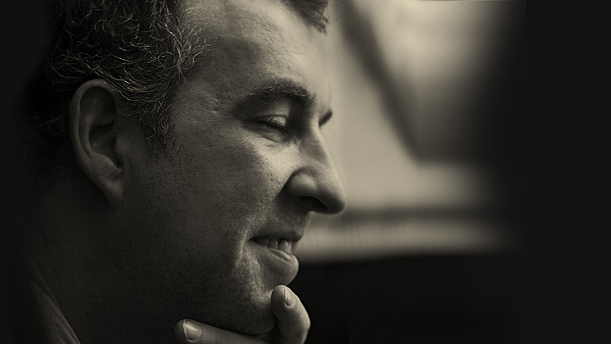
by SeanBreathnach | Jul 5, 2012 | Cinematography, Education, featured, Short film
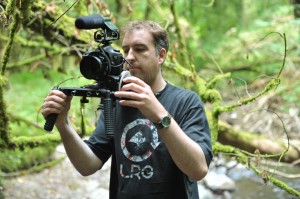
This week we interviewed one of the hardest working camera operator’s and D.O.P.’s in Cork, Paraic English.
Páraic has worked as DOP on dozens of films, including ‘Hungry Hickory’ (Short Film, Dir. Damien McCarthy) and ‘Penny’ (Short Film, Dir. Patrick O’Shea). He has shot and edited short films, documentaries, adverts, stock and catalogue Shoots in Ireland and abroad. A comprehensive list of credits can be seen on his IMDB page: http://www.imdb.com/name/nm3279826/
Every time I attend a film festival in Munster I see your name on films. Have you worked with everyone in Cork at this stage?
Nope. Cork is so small, crews and cast often overlap over different projects. It’s good for continuity and building working relationships but at the same time I’m always happy to hear new ideas from ‘strangers’ or strange ideas from ‘newbies’.
Are you shooting something at the moment? Can you tell us a little about it?
Ya always working away on something thankfully, it’s wedding season! I enjoy doing short promos, most recently one for an Opera Production, part of the Midsummer Festival. We have some scenes left to shoot for Kevin O’Neill’s upcoming short film too and a trip to the west of Ireland is in the offing soon too to shoot the CFC/RTE Short Script Award Film ‘Leanbh’. Other than that I’m kept busy freelancing for production companies grabbing B-Roll, talking heads and sunshine shots for corporate and event films. Trying to get my head around motion-controlled timelapse for a wee trip in August too. It’s complicated and I don’t have a head for figures.
How important is the script to you?
It’s the blueprint for months of planning and effort as far as production crew are concerned. However, there’s so much room between the words for actor performance, score, camera and pacing that I’m often thankful I’m only a techie. I rarely read it more than twice.
What is your favourite part of the job?
Apart from the early starts and late finishes? Eh, editing. That’s where it all comes together. You do get to see some cool stuff now and again. Film is something that can bring people together so that’s nice to be a part of.
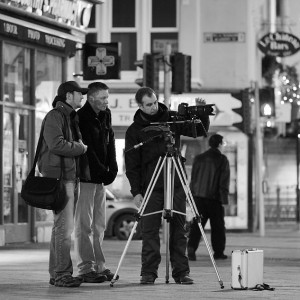
What is the worst part of the job?
Multi-tasking. Keeping an eye on light continuity, eyelines, shooting for the edit, boom in shot, makeup, shadows, composition, moving the camera, the other cameras, unravelling the slate notes. You get the idea. You’d be knackered after it.
Who would you say your biggest inspirations are in film?
Werner Herzog, Roy Andersson, Robert Altman, Hitchcock, Fellini (for the madness and the moving camera), Scorsese, Orson Welles for Lady From Shanghai alone, I’m partial to a bit of Terence Malick too. Anything Jack Cardiff shot. I like the stylistic touches of Jean Pierre Jeunet & De Palma too sometimes. Roger Deakins is a great storyteller and shares lots of his techniques online too which is great for anyone with an interest. Laurel & Hardy films are always a winner.
What was the biggest challenge on your most recent film? Do you find the same challenges coming up again and again?
Ya always the same challenges. Smaller budgets mean short shoots in locations that often can’t be modified or adequately lit and sadly the lack of technical prep time can have consequences. Compared to the challenges of the production team they pale – everyone does the best they can with what they got. I have lots of admiration for anyone who actually makes a film, it takes a lot of guts.
How much have things changed in your line of work in the last ten years?
Very little. It’s more affordable in some ways to get a good image onscreen but a good story well told will never change. The internet is probably the greatest change. New market and a whole new set of imponderables.
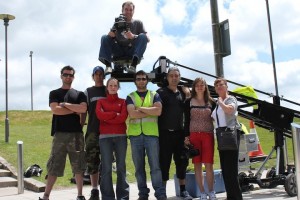
Have you particular advice to give amateur film makers regarding camera work and lighting in their movies?
Fix it in post.
What do you think of the condition of filmmaking in Cork at the current time?
I’m optimistic. In the past, scripts may have fallen by the wayside but there now seems to be an appetite and personnel to see through projects to a high standard. Lots of distinctive original voices coming through. Ireland is a cinema-loving and cinema-literate nation. My wish would be that this would continue so we can make our mistakes now and if funding materialises in the future we’ll be in a better position to deliver something we can be proud of.
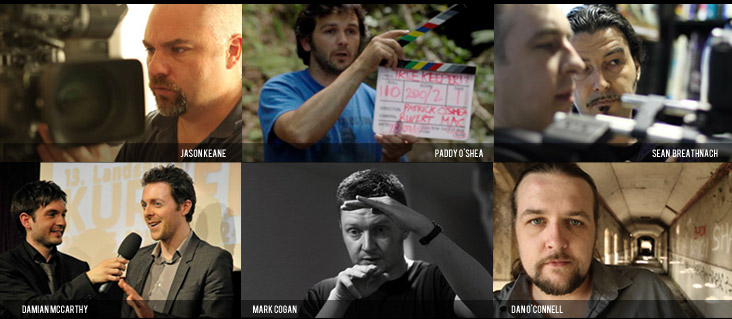
by SeanBreathnach | May 19, 2012 | Education, featured, Short film
We interviewed some local independent filmmakers to find out what drives them, what barriers they need to overcome, and what they think of the filmmaking buzz which is currently gripping Cork.
Click here to read the first part of the article
The Interview: Part 2
6. What advice would you have for anyone who wants to get into the movie making business?
Jason: Make sure you’re doing it for the right reasons! There will be many lean years before hopefully you will be able to make a successful living from it. The only thing that will sustain you during these years will be passion and love for the craft and medium. You really have to love it. In fact, it’s more like a vocation than a career.
Damian: If you can’t attend a film school then go along to film appreciation classes. Watch as many different films as you can. Write everyday. Put work into coming up with original ideas. Shoot something and learn how to edit it. There are loads of free tutorials online. Just start making short films. The first 5 or 6 will be really bad so don’t worry too much about them. I have never seen anybody made a good first short film. You just have to look at what worked and what didn’t and learn from it. I would also never abandon a film even if you know half way through the edit that it’s terrible. People helped you make it so the least you can do is finish it to the best possible standard.
Dan: Do it. It’s a blast. But don’t expect anything back, only what you put in.
7. What was the biggest challenge regarding your most recent film?
Seán: With ‘Searching For Ten’ it was probably locations. I had particular locations in mind that had character that fitted the story. I looked at a lot of locations all over Cork andWaterford. Here’s where a locations manager would have been a big help! In the end though, lots of people came through for us. Vibes and Scribes were great, as were CIT and O’Keeffes grocery at St Lukes, along with John and AJ Finn. The people here are enthusiastic about supporting local films.
Dan: It was definitely the edit. It’s a fractured timeline, so the possibilities are almost endless, the biggest problem is you get so wrapped up in the edit that you forget the big picture, you loose your understanding of the film. In some ways it was great having so much freedom to throw shots around wherever you want, but you see the same shot over and over. How do you tell the story if the words lose their meaning.
Jason: I’ve just started DP’ing a feature for someone so this is a real challenge. It’s my first feature so it’s a big step-up from shorts, corporates and live events. Things have started well so hopefully it will continue in that manner. Good preparation is so important. Exciting times ahead!
Damian: I’m in the very early stages of my first feature film now so the script is definitely the hardest thing I’ve ever done. I’ve written feature length scripts before but they were a mess. Mainly because I just launched into them with no real plan. I approached this script better though. I worked on plot for 6 months before even attempting to write a single page of the screenplay. I took a lot of dialogue notes too so when it came to the actual writing of the script it was easier. If you start writing a 90 page screenplay without a plan you’ll be lost by page 20. We have one short horror set-piece shot so far and I’m really happy with the footage, but this one scene has somehow resulted in more rewriting. I don’t mind so much as long as I’m replacing good ideas with better ideas, or making changes that are going to make the film more entertaining, but it would be nice to say ‘the script is finished’. Done. The story has always been the same it’s just how it’s being told changes. I think it was George Lucas said that ‘films are never finished they are abandoned’ – I’m starting to think this is also true of the script.
8. Would you recommend festivals or the internet for promoting short movies?
Mark: Festival screenings can be great. Some are quite prestigious and it’s always nice to be selected for a programme, especially in other countries. However these days I think having your film online is a far better option. The world is literally your audience and it has potential to be viewed by far more people than if it were screened at a dozen festivals.
Damian: Festivals first then the internet. Film festivals are great exposure. Good way of making contacts too. I usually wait until the films have played in a number of festivals before putting them up online as some festivals don’t want to screen something that’s available online. Once it’s played in a few places the internet is great for giving it a longer life. I’ve had festival programmers invite some of my films to screen at festivals having seen it online so having a film online doesn’t mean its festival run is over either.
Jason: Both. Festivals are a great way to sell yourself and meet other filmmakers. Once your film has done the festival circuit then it’s always a good idea to upload it to Youtube and/or Vimeo. Who knows who might get to see it!
Dan: I think both are good options. I tend to hold mine back from the internet in the hopes that one day I might actually send one out to a festival. Once it’s up online you kind of ruin your chances of getting into a lot of them, but then if you get your film online and get a million bejillion hits! Then that’s way cooler than getting into even the major festivals. If your film is any good then you want your film to be SEEN by as many people as possible, that’s the most important thing.
9. Who would you say your biggest inspirations are in the film world (directors, actors, cinematographers, etc)?
Patrick: I take inspiration from lots of different areas of film. I do have my favourite film makers whose work I would seek out every time they release something new. For example, Pedro Almodovar, The Coen Brothers, Darren Aronofsky, Quentin Tarantino to name but a few and I would also constantly watch and re-watch old classics and in particular the films of Stanley Kubrick.
I also find inspiration in an actor’s performance, Michael Fassbinder in ‘Hunger’ for example or Colin Firth in ‘The King’s Speech’ or Imelda Staunton in ‘Vera Drake’.
More recently I was very inspired by ‘Tinker, Tailor, Soldier, Spy’. It is such a well rounded, well made film. The writing, the directing, the beautiful camera work and production design and the amazing performances.
Jason: I have many favourite directors but it was especially the films of Akira Kurosawa and Stanley Kubrick that inspired me at a young age and opened up a whole new world of cinema to me.
Dan: That’s like putting a bowl of rice crispies in front of me and asking which one is the tastiest! I simply cannot say. Suffice it to say, that if I have seen their work in a cinema, on a DVD I bought or if I actively sought them out to watch online then they have achieved far more than I have yet and they are all inspiration to me.
Damian: I like actors and directors that take chances and do something different. Some of my favourite films are films that, when they’ve finished, you don’t really know what to make of it but there’s something about it that makes you want to watch it again. I think a lot of Stanley Kubrick’s films were like that for me. It took a second viewing to realize what he was doing and twenty views later you’re still discovering something new. I think he said ‘real is good interesting is better’. It sums up his films well, especially in the strange performances he gets from his actors.
10. Could you summarise how you recruit your primary cast and crew?
Dan: I held auditions for my last film as I was actively trying to find some new faces. A good friend of mine, Eoin hAnnracháin helped me a lot. He set up the auditions and found some great acting talent form all over the country. The crew, all of them, are great friends of mine. I help them out on their films, and they help me out on mine. The crew can change from film to film but that’s only because we are doing it for free and we have to work around peoples schedules. Sometimes people are not available and you have to work around that.
Damian: Enthusiasm over experience… within reason. I work with people I get along with. I read in some filmmaking book you shouldn’t make a film with anybody you wouldn’t go on holidays with. I wouldn’t go that far but maybe replace ‘going on holidays with’ for ‘a night in the pub’ and I think it’s sound advice. Making films are fun but the shoot can be tough and you need to have people there you trust and that you can ask for help if you get stuck. I know the director is supposed to know everything but it’s reassuring to know you can ask for a suggestion and then decide on what is best. The director gets all the credit at the end of the day anyway!
Jason: When I lived in New York, I would use Mandy.com, Craigslist and NYCastings to cast actors but since I returned to Cork I have relied mainly on Egomotion.net and FilmmakersNetwork.ie. Word-of-mouth is always important too of course.
11. What camera did you use to shoot your latest film, and why did you chose it?
Damian: I’ve made films on 8mm to 16mm to the 7D and I think it’s a balance of whatever suits the look of the film and with whatever your Cinematographer is most familiar with. It is important what you film on, but I think what you’re filming, as in, what is in front of the camera is more important. Is your location interesting? Is there texture on screen? Is the lighting right? Do you have unusual props? These are always more important to me than what piece of equipment we’re actually using. You could shoot some terrible unwatchable show like Fair City on the most beautiful grainy 35mm film stock in the world. Won’t make it any better.
Mark: We used a Canon 7D. The quality is superb and being able to change lenses really gives your film that professional cinematic look and takes it to the next level. I’ve shot my last three films on the 7D.
Dan: We shot using a canon 7D and a 5D mkII because they’re cheap-ish, we had access to them and they give great creative control over the image with nice large sensors and great availability of lenses.
Jason: The Canon 5D MarkII. It has its well-discussed limitations but if you’re aware of them, then you can work around them.
Patrick: We decided to shoot our debut feature film on a Canon EOS 5D Mark II. There was a number of reasons for choosing this camera. It has a full frame sensor and a beautiful filmic image when used correctly. It is a relatively affordable piece of kit for the quality of image that is achievable. The 5D is also very small and light and we were able to achieve very high and long crane and jib shots with the camera strip down to its basic shape. Also, because of its small size we were able to move around in small sets and locations and fit it into and onto moving vehicles.
Some drawbacks of the camera include rolling shutter, moire and aliasing issues and a limited dynamic range, but if you do enough camera tests and play to this camera’s strengths the results can be stunning.
Finally, what do you think of the film industry talent in cork and cork as a location for film?
Patrick: I think it’s a very exciting time in Cork as regards film-making. As a film industry Cork is very much in its infancy and I think what is needed now is for some Cork based film makers to make a couple of properly funded feature films in Cork. We have seen a good number of features coming to Cork to shoot over the past few years but they bring the majority of their key cast and crew with them. What we now need is films that are locally produced and properly funded.
I think Cork is a fantastic location for film. Stunning locations are available all over the city and county and there is a still a great local and community spirit that film makers can tap into.
Seán: There is a large pool of talent here in Cork from every discipline of movie making. It’s a great place to make movies. Everything is right here on our doorstep. We have a good sized city, and beautiful countryside. And there is a buzz around film in Cork at the moment. Hopefully we can see that buzz grow into a self sustaining industry.
Dan: This is the most exciting question; it really gets me charged up when I think about it. There is so much talent coming out of Cork at the moment it’s scary! You see the same ten or twelve faces popping up every year with some great films- it’s like a wave of filmmaking. Everyone seems to be working in tandem and everyone is getting better and better with each passing film. Some are going on to work on their features some are hot on their heels, but its all growing nicely. The future for Cork filmmaking is gonna be a whopper! Some one is going to break through the barrier and once they do the gates are open for everyone else. A rising tide floats all boats! Any other analogies?
Cork as location is pretty impressive: Lots of locations, lots of fresh untapped talent, infrastructure is there – all we need now is a decent sound stage!
Jason: When I returned to Cork after being away for nine years, I was amazed at how vibrant the independent film community was and how many talented and passionate people there were here. I really had no idea that Cork had such a thriving film community. I didn’t even know Cork had its own film school (St Johns)!
Cork really is a fantastic location for film and TV productions. Whatever type of environment you need – rural, mountains, pastoral, coastline, forests, urban, Cork has it all. I’m surprised that much more film and TV productions aren’t shot here. The only downside I suppose is the lack of adequate soundstage facilities.
Damian: There’s something special happening with filmmaking in Cork at the moment. Everyone is working on something. There are groups and pockets of people all working on something different. There are a number of filmmakers that are having their work screened not just locally too but in film festivals abroad. There are definitely a few people around that have great careers ahead of them. People seem to be quiet supportive of each other too. It’s obviously a competitive industry to get into but there’s a nice vibe around the Cork Film scene. You can see the quality improving every year in the Made in Cork section at the Corona Cork Film Festival. I’ve come out of a few of those screenings thinking ‘I need to work harder’.

 The lighting equipment list was very short, as I said, I did not have a lot of time to put lights.
The lighting equipment list was very short, as I said, I did not have a lot of time to put lights.















